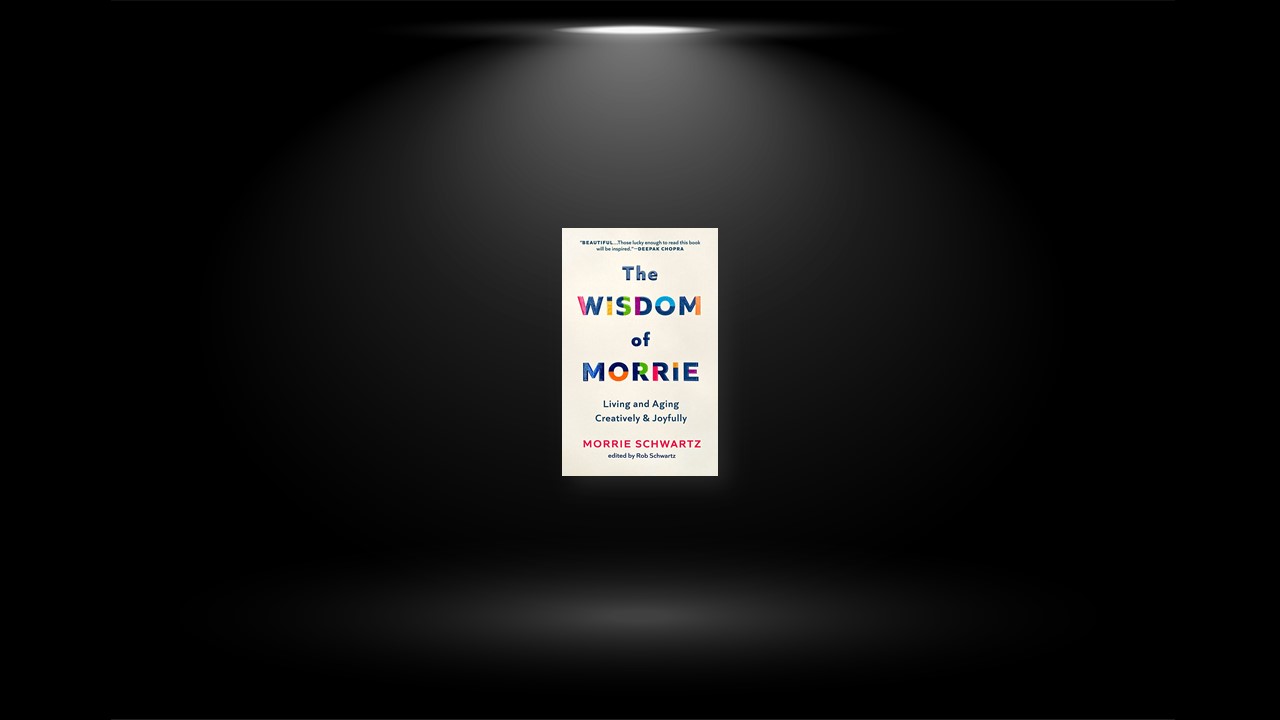The Persistence of Time
Time is the vehicle that allows life to be lived. Time can have different meanings, a different “feel,” a different sense of slow or rapid passage, at different times of your life and under different circumstances.
The issues are (1) your attitude toward, and feelings about, time; and (2) in view of these, how you spend and manage your time. Here are some statements that reflect feelings and attitudes toward time in later life: Time is running out. Every day is part of the quick stream of time that flows so rapidly, I can scarcely tell one day from the next. I don’t have enough time to do all the things I want to do. Time is short, and I mustn’t fritter it away or waste a minute of it. Time moves so slowly that it hangs heavy on my hands. Every day is precious and to be cherished.
These statements reflect three different attitudes toward time: (1) Time is short, especially because the time left to you is limited and is so much less than the time you have already lived. (2) Time is viewed matterByof-factly, with no particular concern that it is passing too fast or too slow. And (3) time is chronologically short but psychologically and experientially long.
If you feel that time is short, that it moves too fast in view of all the things you would like to get done, and that you must use it as fully as you can, you might take a close look at how you spend your time. Think about how you might organize it to maximize your use of it, and then make some choices about how to spend it. Here is how you could proceed:
You evaluate and calculate what is worth doing and what isn’t, according to your values, needs, beliefs, and obligations. What do you really want to do, and what can you do without even though you might enjoy doing it?
You set priorities among those activities that made the cut and are worth doing. You determine how to budget your time: how much time to spend on a particular activity before you proceed to the next one. You can do this by careful scheduling, or you can come up with a set of general guidelines that have flexibility and variability built in.
Because you feel time is so short, you may become agitated or hurried. You then might have to watch out that you don’t start flailing about frantically, act in a disorganized or confused way, or, at the other extreme, become frozen and immobilized. But dealing with time in a deliberate and organized way may help you feel comfortable with the passage of time, diminish the agitation, and help you enjoy the ways that you use time.
If time is of no great concern to you and you are not preoccupied about the speed of its passage or the brevity of its duration, you may undertake your tasks and spend your time leisurely, whimsically, playfully, or seriously. The choice varies with your mood, your circumstances, and the demands being made on you.
Finally, if you see the amount of time available to you as indefinite and each day as a renewal of that available time, then you might make time to appreciate the little things, or the big things, that come into your view. You might take time to concentrate slowly and carefully on the things you see, especially an object of beauty or something that especially appeals to you. You might search out its unique qualities and observe it intently. You might try to bridge the distance between you and it so there is no separation and it becomes part of you. And for a while, you might feel exhilarated by the power of the experience. Or experience the serenity and ease that comes with the sound of birdsong, or the wind in the trees, or the stillness of a dark night. You could feel the warm sunshine on your skin, or experience the joy of spring exploding in the trees and flowers. If you listen long enough, you might find the birdsong dissolving into you so that you and the sound are one. The passage of time becomes unimportant. Time appears to stop and keep you fixed in an eternal now.
Stay Involved In, and With, Life
Stay attached to what involves you, and stay fully present with all that happens to you. Keep your interest in life ongoing, and at the most intense level possible. Participate with enthusiasm and passion in whatever is going on with you. If you feel “out of things,” seek out situations where you can get involved. Keep yourself alert and excited about new possibilities for being involved.
Barbara Meyerhoff, in her book Number Our Days, describes someone she studied: He was a man searching, always searching in everything that went on, for what life is about. He was a model for us in getting old. It is not necessary for us to be lonely and feel sorry for ourselves . . . We can learn how to live and how to die from him, calmly but vigorously, members of life to the very last minute.
Listen to Bernard Berenson at ninety-two: Living at my age with all my disabilities is anything but a picnic. So why cling to it? Partly out of mere animal instinct. Partly out of curiosity about tomorrow and day after tomorrow. Partly because I am not resigned to giving up, and still am eager to achieve, if only as an inspirer . . .
But I still want to learn, I still want to understand, and I still want to write. How shall I get rid of these lusts? Physical incompetence only will emancipate me from their slavery, but what kind of freedom will it be? The antechamber of the End. But how I still enjoy sunlight, nature, and stormy skies, and sunsets, and trees and flowers, and animals including well-shaped humans, and reading, and conversing!
Explorers Have More Fun
Often standing in the way of exploring new horizons is a fear to go beyond the limits, to break the boundaries of the expected and conventional—the fear that we will become distressed, destructive, or mad. Yet that may be precisely where the creative, the ecstatic, the exhilarating is to be found. So don’t be afraid to be in transition. Become more accepting of unfamiliar and changing situations.
Become an explorer: open up to being transported beyond yourself and being moved by a great passion, a noble act, or a burst of creativity. Delve into remote areas and foreign lands inside yourself, unfamiliar thoughts and ideas, strange imaginings, and new affective realms. Undertake new tasks and welcome the opportunity to engage in new challenges.
Seek out situations that provide security, but not only those. If you seek out situations that are risky and uncertain, know what you are doing and how to retreat to a safe base. The quest for adventure knows no age. We are never too old to decipher tantalizing mysteries and puzzles.
Handle Adversity
Shrug off the put-downs, aggressions, and power plays that others try to impose on you. Learn how to handle these annoyances so they don’t raise your stress or anxiety levels. Let them wash over you, or actively push them away. Be strong on the outside, doing what is needed and handling unpleasant or difficult situations, and warm and tender on the inside, being nurturing when needed.
Since illness and other adversities are unavoidable in later life, learn how to handle them. This means not making your illness your central focus. It also means putting it aside and going on with the rest of your life. Focus on your illness only during those times that you need to treat it so that it doesn’t get out of hand. Try to resist the depressive power of the illness by taking a positive attitude toward your own recovery. Embody a “fighting spirit,” filled with courage, dogged determination, and the conviction that you will conquer the illness—that you will endure, using all your means, from medication to meditation, to reverse the illness process. Don’t give up hope.
Relentlessly pursue health with a willingness and the stubborn will to continue to fight a disease. Genuinely believe in and expect an improvement or recovery. Thus, in addition to doing what is medically necessary, you will exert all your powers of mind, heart, wish, belief, spirit, and behavior to defeat your sickness. You will also accumulate inner strength to deal with the vicissitudes of aging.
Make Your Life Meaningful
Newbery Award–winning children’s author, educator, and thinker Elizabeth Gray Vining, who authored over sixty books in her life, emphasized that life is to be cherished. She saw it as a sacred trust: “It seems to me childish and churlish to say that life is horrible and without meaning. Life is a trust, given into our hands to hold carefully, to use well, to enjoy, to give back when the time comes.”
Embrace and reinforce the meaning that is already present in your life. If it isn’t there, create some! Maintain meaning in your life by making meaningful whatever you are doing at the moment. The process itself, whatever it is, can be as meaningful as the expected result. Search for meaning in its larger sense. What is ultimately and existentially meaningful? And in its smaller sense—find the meaning invested in the details of everyday life.
Stay Related
Stay related to people of all ages, both older and younger than yourself. And make some connection with your community and the larger world. Especially, stay related with those who admire and respect you.
Get to know someone older than you whom you admire because they’re aging well and who can serve as a role model for you. And pay something forward by serving as a role model and sharing your experience and wisdom with others who are receptive and welcoming. Learn how to help your grandchildren fulfill their potential without alienating their parents—or, better yet, with enthusiastic approval from their parents.
Have warm, friendly relations with as many people as you can, and feel a sense of personal responsibility with them. But also protect your private space from intrusion when you need to. Develop effective means for resolving interpersonal difficulties. Express your feelings of frustration, disappointment, and irritation without doing injury to yourself or anyone else.
Staying connected takes some effort, but it’s worth it.


